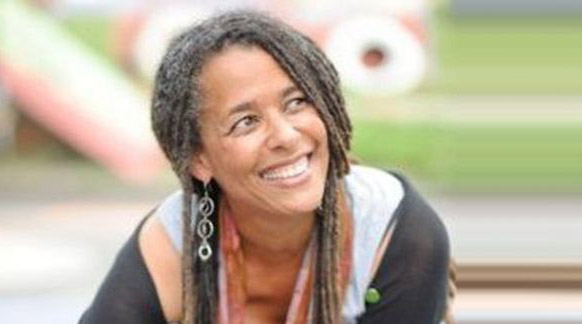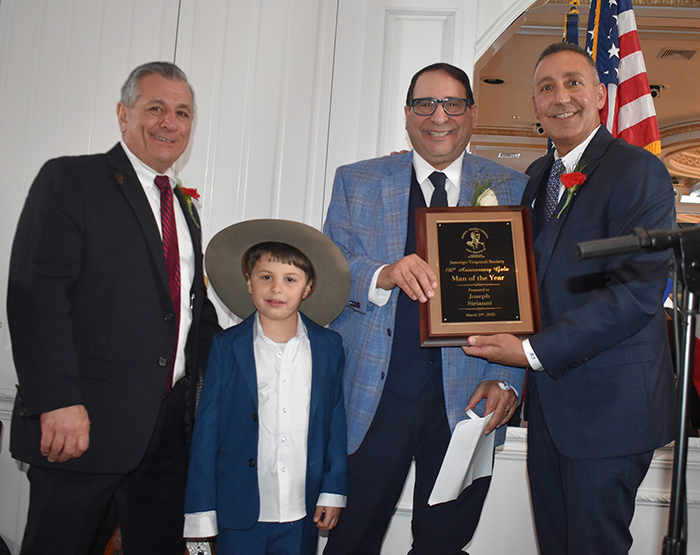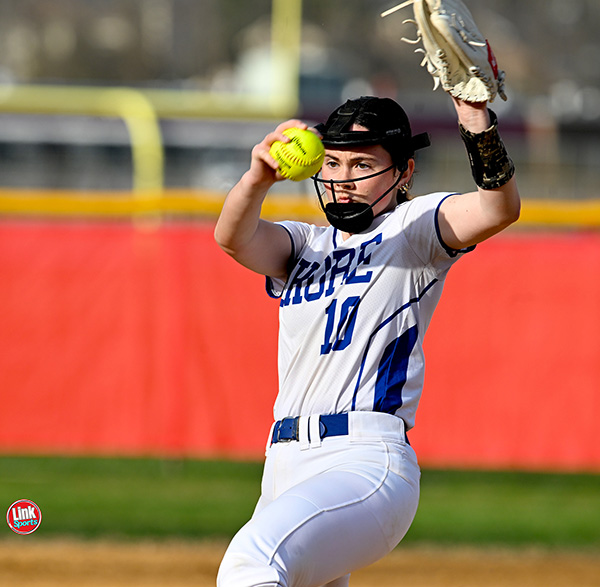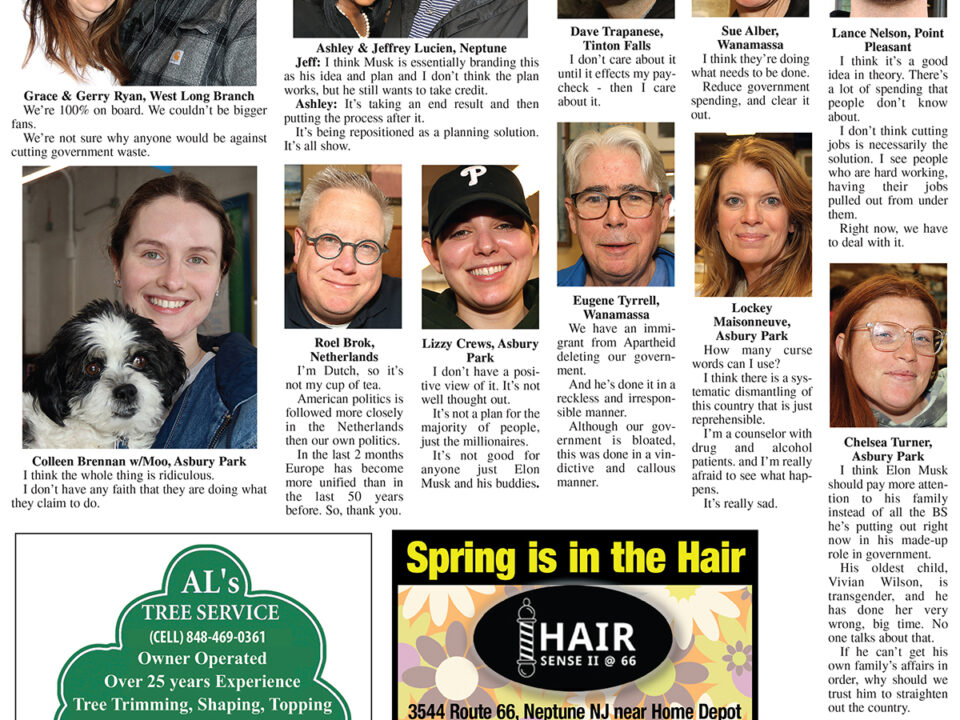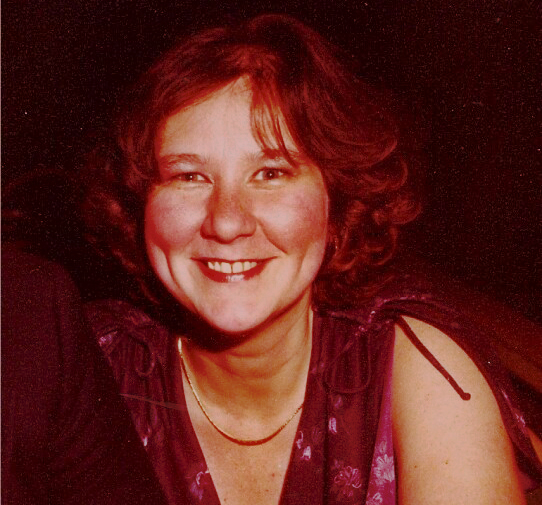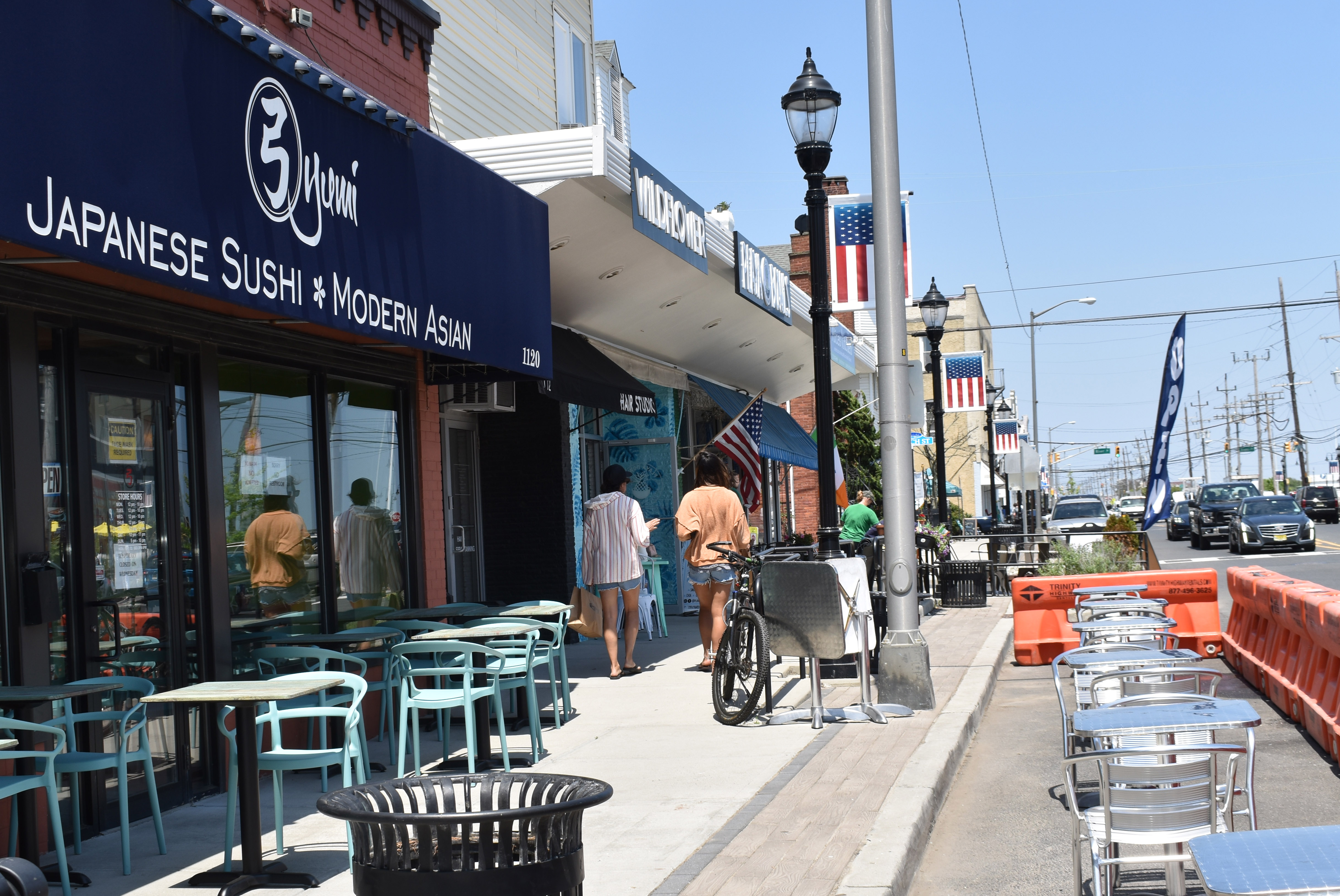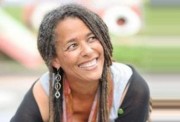 How comfortable are you in the outdoors? Do you feel happy and safe in parks and outdoor spaces, or do you feel unwelcome or uncomfortable?
How comfortable are you in the outdoors? Do you feel happy and safe in parks and outdoor spaces, or do you feel unwelcome or uncomfortable?
The State We’re In by Michele S. Byers, Executive Director, New Jersey Conservation Foundation
Your answer may depend on the color of your skin.
Not everyone feels safe in parks and nature preserves that belong to us all. People of color may feel out of place or, worse, the target of suspicion or hostility.
Changing that situation was the aim of a recent discussion on “outdoor equity” led by Black author, storyteller and educator Carolyn Finney.
Finney was invited to speak to New Jersey’s land conservation community – a largely white group that works to preserve open space, parks, trails and farmland – about ways to make their work more inclusive of New Jerseyans of all ethnicities and backgrounds.
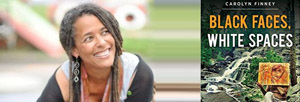 Finney is the author of the book “Black Faces, White Spaces: Reimagining the Relationship of African Americans to the Great Outdoors.” She has backpacked around the world and has seen firsthand that people of color are frequently challenged or questioned when they’re out in nature.
Finney is the author of the book “Black Faces, White Spaces: Reimagining the Relationship of African Americans to the Great Outdoors.” She has backpacked around the world and has seen firsthand that people of color are frequently challenged or questioned when they’re out in nature.
“For Black people, navigating both city streets and hiking trails can be charged; at worst, they are fraught terrains where we are at the mercy of someone else’s interpretation of our presence,” she wrote in a 2020 essay. “Too often, by default, Black people are perceived as threats to White people’s physical safety.” In turn, that threatens their safety.
For example, on the morning of Memorial Day 2020, a Black birder named Christian Cooper grabbed his binoculars and headed for his favorite spot in New York City’s Central Park.
Trouble ensued when he asked a woman to leash her loose dog. When she refused, he began filming her with his phone. The woman, who is White, responded by saying she would tell the police that “an African-American man is threatening my life” and then dialing 911.
“George Floyd and Christian Cooper exist on a continuum,” Finney told the New Jersey audience via Zoom. “On one end of the continuum, you could die.”
The topic of Finney’s talk was “Finding Common Ground: Equitable Access for All to Nature and Preserved Land.”
Making New Jersey’s outdoor spaces more inclusive of all races is not easy. The perception of many people of color, Finney noted, is that parks and open space are preserved for wealthy, White people. What’s needed to change that perception, she said, is a willingness for those in power “to meet people where they are and connect with their humanity.”
That means acknowledging historical losses that came when Blacks, Native Americans and other people of color were separated from their land. It means debunking the 19th century doctrine of manifest destiny, the belief that U.S. expansion across the American continent was justified and inevitable. It could mean making reparations for land unjustly taken.
“Reparations means repair,” Finney said. “We can find common ground on what repair looks like.”
The process won’t be quick; Finney calls it “the long game.” It will also take courage and a willingness by those in power to step out of their comfort zones. “If you’re going to look at this honestly, it’s going to shake your world up,” she said. “A lot of people don’t want to do it because it feels crappy and you have to give up some stuff.”
But Finney feels encouraged by the simple fact that a conversation is taking place here in the Garden State: “I’ve never seen a door open so wide in my life.”
In Mercer County, for example, a coalition of public and private conservation groups has founded the Outdoor Equity Alliance to ensure nature is available to all.
Jay Watson, the head of New Jersey Conservation Foundation’s land preservation program and one of the Alliance’s founding members, said the group’s goal is to make sure that all people can enjoy the mental, physical and spiritual benefits of spending time outdoors without fear or feeling unwelcome.
The Outdoor Equity Alliance is exploring what the real and perceived barriers are to enjoying nature. For instance, some people might lack transportation to parks and preserves, while others may feel that they don’t know enough about the outdoors to feel safe. The Alliance is also investigating how outdoor education programs, possibly offered in school classrooms or by outdoor clubs, could turn the situation around.
The Alliance is currently writing its first strategic plan for increasing diversity in outdoor landscapes and to help create the next generation of conservation leaders. The group is hoping its work will be replicable in other parts of the state and nation. “We want this to be so well done that others working for equity will want to take it on and make ‘Nature for All’ a reality,” said Jay.
To learn more, visit the Outdoor Equity Alliance website at https://outdoorequityalliance.org/.
For more information about Carolyn Finney and her work, go to https://www.carolynfinney.com/.


